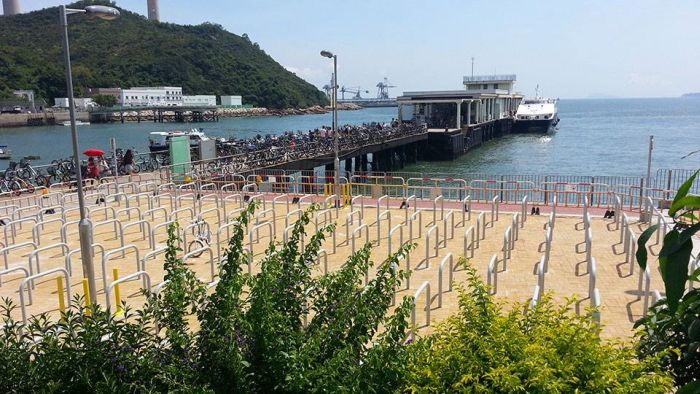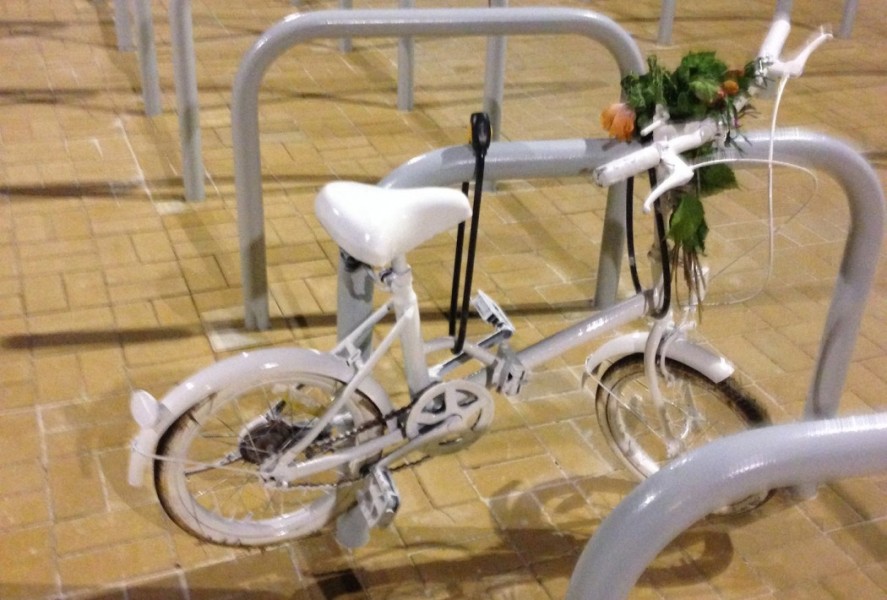A controversial bike park on Lamma Island that was slammed by residents as a waste of money cost HK$24.8 million to build, the local council has confirmed.
The bike park by the Yung Shue Wan Ferry Pier on Lamma Island was completed in June 2015 but was closed for a few weeks, prompting outrage from residents over the so-called “white elephant project.”
A spokesperson from the Islands District Council confirmed to HKFP that the park was proposed in 2003. Its construction was a result of concerns about public safety due to the number of “illegally parked bicycles outside the pier, particularly when emergency vehicles had to pass through right before or after ferry berthing.” More than 400 bikes are regularly parked at the pier, and the new bike park can contain just over 300.

Authorities previously suggested that the controversial bike park would cost between HK$18 million to HK$20 million to build, meaning the final figure from the District Council was 24 per cent more than what was initially estimated. Each parking space cost more than HK$80,000.
For years, local residents have parked their bikes on the railings of the Yung Shue Wan pier, however the pier is not technically a legal bike park, and some residents have received notices from the council reminding them their bikes could be confiscated.

Alan Sargent, a Lamma Island resident and vocal critic of the bike park, explained to HKFP that it would have been cheaper for the district council to convert the pier into a legal parking space as the pier itself is six metres wide and can hold more bikes.
“Soon they will start confiscating and destroying bikes ‘illegally parked’ elsewhere, regardless there is no alternative for over 120 cyclists, let alone the slowly increasing number of people riding to the pier, as new houses are built further and further away,” he said.
“Makes me sick to think of the waste. HK$500 and a bucket of paint and you could mark lines, put up a sign saying ‘park behind the line’ and had a better and more convenient parking solution that accommodated 500 bikes on the pier. Could have done that 20 years ago instead of spending a fortune on a concrete plinth that could support IFC.”

Residents say the project was spearheaded by Lamma Island District Councillor Lai-fan Yu, who they claim has been calling for the proposed bike park for at least a decade.
The government announced plans for the park at the beginning of 2012 to meet public demand and to curb “illegal” parking on the Yung Shue Wan pier.
The Lamma Cycle Parking Area was approved by the government on March 15, 2013 despite objections raised by residents during the public consultation phase as far back as 2003.
The facility was dubbed the ‘ghost’ bike park by residents following a lengthy period after construction where it stood empty and was fenced off. One morning a bicycle painted entirely white was discovered chained up in the middle of the park sporting a bouquet of flowers.
The Lamma Island bike park is one of many unpopular construction projects proposed by district councillors in Hong Kong. Earlier this year, the HK$210,000 Quarry Bay rain shelters were ridiculed for failing in their primary purpose – to protect people from rain.

